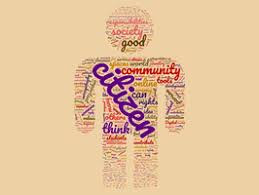What does Liberal Education mean in the Digital Age?
Liberal Education had a particular meaning at its origin. Or, rather, it had two or more different meanings at the origin: the 'liberal' in English-Scottish sense, an education to be critical and to seek the truth and the German idea of 'Bildung', of continuous self-cultivation. This is a self-consciously gross generalisation, but I think those two ideas should remain at the heart of modern liberal education. It should both be sceptical and hopeful, never a slave of received wisdom and forever in the faith of cooperation and progress. And, this is exactly the same core values modern, secular, democratic societies need: The belief that we can work with one another, better our lives and can make decisions without being told - by some divine or dictator - what we should do, is essential to its existence.
The above is rather obvious and well-trodden ground, but importantly, these ideas are historically defined. Some of these ideas, of questioning, of progress, of cooperation, have ancient roots, but they have only come together once societies looked for non-secular, non-absolute authorities. Between the self-evident truths of American founding fathers and battle cries of Bastille, from the deep pessimism of Malthus to the death of Adam in the hands of Darwin, societies had to look for new ideas and models and a new form of education had to provide them. As Liberal Education as we know it emerged in the nineteenth century, it was responding to certain historical social, economic and conceptual developments.
Hence, I argue, it needs a refresh. The digital has reached that threshold of impacting social processes - how work is organised, how money is made, what's valued and what's not - and it is penetrating the world of our beliefs and hopes. Already the first generation of 'digital natives' has entered the workplace and making decisions about how to live. The ways we interact has started changing and what's important (and what's not) is being redefined. Appealing to Liberal Education's timeless character is only affirming its irrelevance, even when democracies are in trouble, machines are beating humans in their jobs and there is a ubiquitous lack of control on our lives.
I think there are two things amiss in the idea of Liberal Education in this digital age.
One, it has become too literary. This is not a new complaint but it is nonetheless relevant now. Someone being liberally educated today means he has read a lot and display a high level of mastery of a learned language. While those things remain at the heart of a liberal education, defining it solely in those terms make it both scholastic and static, things that it is never meant to be. And, irrelevant, as the new digital space take away some of the stability of the language in print and new words and new ways of saying things pop up all the time. The liberal as literal produces oddities of soft-vowel politicians such as Michael Gove of Britain, who can turn a phrase but can't warm any hearts. The flexibility, the connectedness and the sensibilities needed for citizenship in the digital age are still not part of liberal education discussions. It should be.
Two, its sceptical core made liberal collapse onto itself. Never taking received wisdom was not meant to be a mandate for intellectual crusading or intolerance of ideas. But it has become that: liberal conversations have turned into a never-ending tirade against all things that don't conform to the label. Civility failed to make itself a liberal value and politeness were rejected as meekness in intellectual sparring matches. Liberal scepticism, the centrifugal force from dead habits of past, was meant to be liberating and unifying, not to be the blunt tool to smother everyone one doesn't agree with. But its current mode, enabled by the digital enablement of impersonal conversations, is of constant disputation and oneupmanship, dividing the world into endless factions of Digital groups and special interest message boards.
There are only two paths from here. One is that the Digital Age brings its own paradigm - of its own politics, society and education. We have had a terrifying glimpse of what that could mean. A consensus is emerging that the narrow, technical paths we are following may lead to nowhere except a future of Robot overlords. The alternative is through a reimagined a liberal education, fit for a digital world of consumption, connection and production. A liberal education that transcends the literary and embraces digital literacies and digital modes of thinking; a liberal education whose scientific spirit is at peace with human nature, one that is built around cooperation and conversation; one that liberates us, animates the beauty around us, agitates us to change and encourages us to cooperate. I have come to believe that this mode of education, a liberal education fit for the digital age, is indeed what should underpin all the efforts of educating the millennials.
There are only two paths from here. One is that the Digital Age brings its own paradigm - of its own politics, society and education. We have had a terrifying glimpse of what that could mean. A consensus is emerging that the narrow, technical paths we are following may lead to nowhere except a future of Robot overlords. The alternative is through a reimagined a liberal education, fit for a digital world of consumption, connection and production. A liberal education that transcends the literary and embraces digital literacies and digital modes of thinking; a liberal education whose scientific spirit is at peace with human nature, one that is built around cooperation and conversation; one that liberates us, animates the beauty around us, agitates us to change and encourages us to cooperate. I have come to believe that this mode of education, a liberal education fit for the digital age, is indeed what should underpin all the efforts of educating the millennials.


Comments